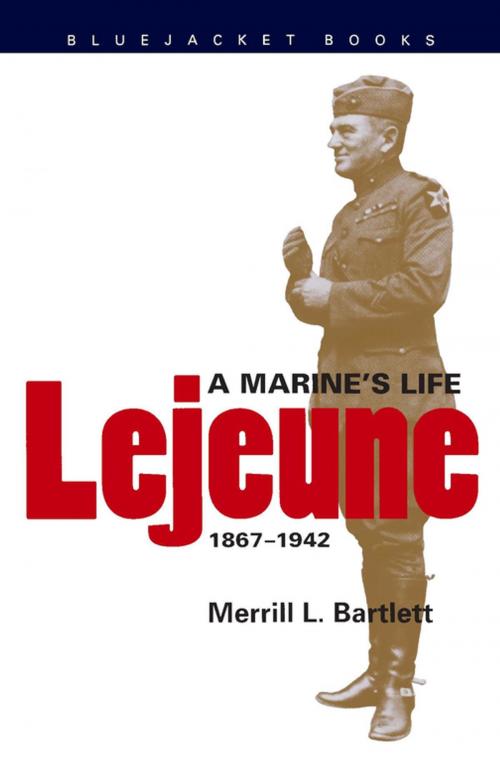| Author: | Merrill L. Bartlett | ISBN: | 9781612512488 |
| Publisher: | Naval Institute Press | Publication: | October 11, 2012 |
| Imprint: | Naval Institute Press | Language: | English |
| Author: | Merrill L. Bartlett |
| ISBN: | 9781612512488 |
| Publisher: | Naval Institute Press |
| Publication: | October 11, 2012 |
| Imprint: | Naval Institute Press |
| Language: | English |
This well-documented and hard-hitting biography of the thirteenth commandant of the U.S. Marine Corps succeeds in converting John A. Lejeune from a near mythical figure in corps history to a flesh and blood officer who helped build the service from a small appendage of the U.S. Navy to an important arm of naval warfare.
Commandant from 1920 to 1929, when he retired from military service to become president of Virginia Military Institute, Major General Lejeune is regarded by many as the man most responsible for the establishment of the modern Marine Corps. In capturing the life and times of this visionary leader who directed the corps toward major amphibious operations, Merrill Bartlett provides vivid insight into the political and military giants of the era and shows Lejeune to be an adroit player of Washington politics and a shrewd manipulator who marshalled the energies and loyalties of his senior officers to accomplish his vision
Commandant from 1920 to 1929, when he retired from military service to become president of Virginia Military Institute, Major General Lejeune is regarded by many as the man most responsible for the establishment of the modern Marine Corps. In capturing the life and times of this visionary leader who directed the corps toward major amphibious operations, Merrill Bartlett provides vivid insight into the political and military giants of the era and shows Lejeune to be an adroit player of Washington politics and a shrewd manipulator who marshalled the energies and loyalties of his senior officers to accomplish his vision
This well-documented and hard-hitting biography of the thirteenth commandant of the U.S. Marine Corps succeeds in converting John A. Lejeune from a near mythical figure in corps history to a flesh and blood officer who helped build the service from a small appendage of the U.S. Navy to an important arm of naval warfare.
Commandant from 1920 to 1929, when he retired from military service to become president of Virginia Military Institute, Major General Lejeune is regarded by many as the man most responsible for the establishment of the modern Marine Corps. In capturing the life and times of this visionary leader who directed the corps toward major amphibious operations, Merrill Bartlett provides vivid insight into the political and military giants of the era and shows Lejeune to be an adroit player of Washington politics and a shrewd manipulator who marshalled the energies and loyalties of his senior officers to accomplish his vision
Commandant from 1920 to 1929, when he retired from military service to become president of Virginia Military Institute, Major General Lejeune is regarded by many as the man most responsible for the establishment of the modern Marine Corps. In capturing the life and times of this visionary leader who directed the corps toward major amphibious operations, Merrill Bartlett provides vivid insight into the political and military giants of the era and shows Lejeune to be an adroit player of Washington politics and a shrewd manipulator who marshalled the energies and loyalties of his senior officers to accomplish his vision















